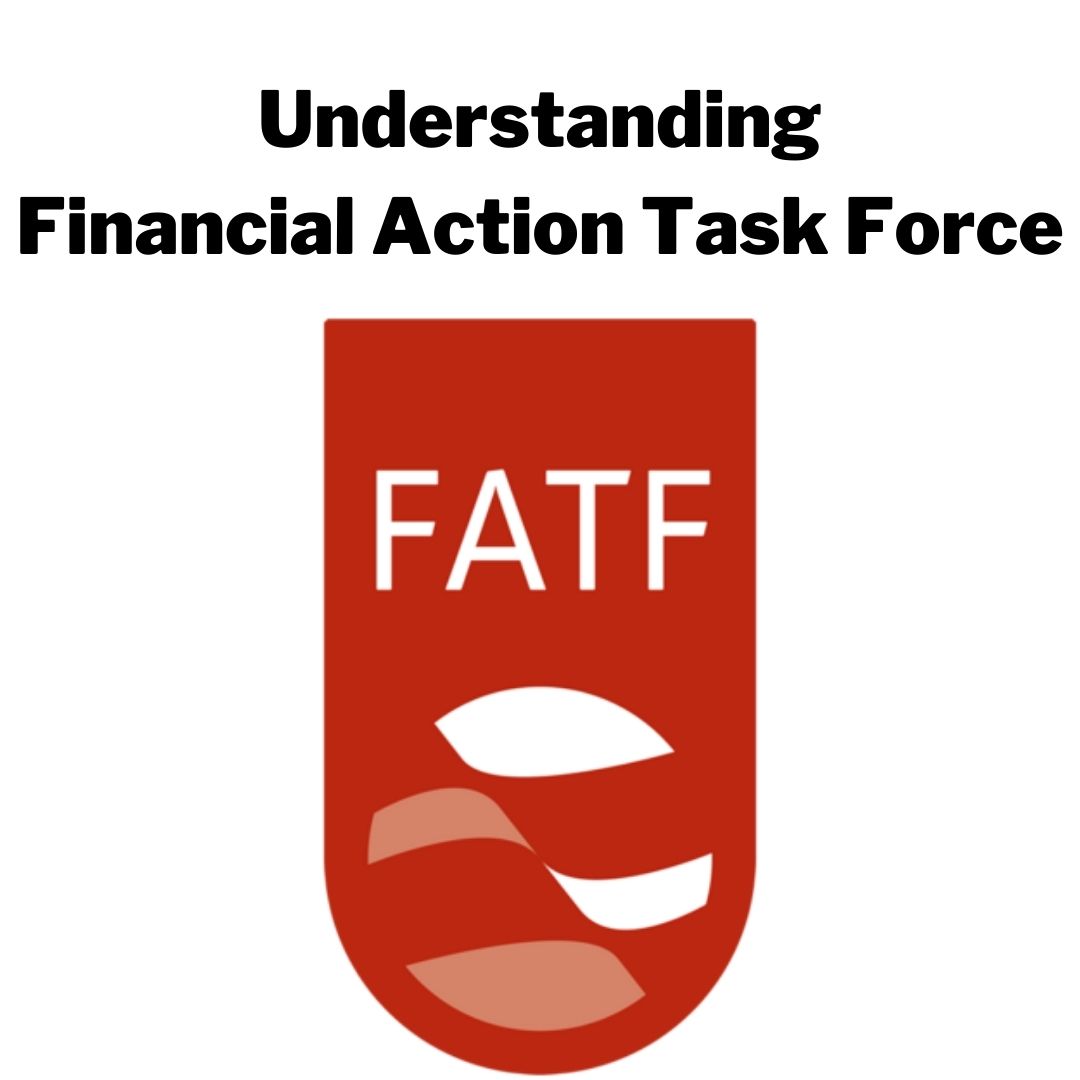FATF : Financial Action Task Force Working
- 9 February 2021 | 1393 Views | By Abhinav Mishra

Do you know, India loses approximately 18 billion dollars through money laundering each year? India is not alone, developed countries like the USA are facing the same issue. There are more than 200,000 money laundering cases reported every year in the UK alone. Needless to say, it is a serious problem the world is facing today.
You must be wondering if this is such a big issue why not someone doing something about it? There is the Financial Action Task Force (FATF) which is a global organization that works in preventing money laundering and combating organizations financing terrorism.
What is the FATF and its function?
The Financial Action Task Force, popularly known as FATF is a global organization that keeps an eye on money laundering and terrorist financing activities. FATF was established by a Group of Seven (G-7) Summit in July 1989 in Paris. The initial purpose of this body was to examine and develop measures to combat money laundering. In 2012, it added efforts to counter the financing for weapons of mass destruction.
Today, FATF sets international standards to prevent illegal activities that harm society. It is a policy-making body and works with the government around the world to prevent these issues.
The FATF has come up with a list of recommendations, also known as FATF Standards, for the government bodies to ensure a coordinated global response to prevent organized corruption, terrorism, and crime. They also work to ensure funds are not available to organizations who are dealing in weapons of mass destruction. They monitor countries to ensure they are following the FATF Standards effectively and fully.
What are the main objectives of FATF?
At the start, FATF was created to set standards and promote effective implementation of legal, regulatory, and operational measures for combating money laundering across the world. Later, FATF also started working on identifying national-level vulnerabilities. It aims to protect the international financial system from any kind of misuse.
What is the FATF Grey list and Blacklist?
There are two types of lists that FATF comes up with and puts countries in these lists if they don’t comply with FATF standards.
Black List – This list includes countries that are considered to be uncooperative tax havens for terror funding. The countries that come on this list are known as Non-Cooperative Countries or Territories. In simple words, if a country is supporting money laundering and terror funding activities then FATF will put them on the Blacklist. The FATF has been publishing the Blacklist every year since 2000. It adds or deletes countries depending on whether the countries comply with standards or not.
Grey List – Just like in football, a player is first given a yellow card before red as a warning, similar a country is first put in the Greylist as a warning before they are moved to the Blacklist. The countries in this list are usually those where FATF has seen some activities against their standards and they will watch it more closely. The main purpose of putting a country in the greylist is to subject the country to increased monitoring. The country in the grey list has to quickly address the identified strategic shortcomings in the time frame provided by FATF.
What happens if a country is on a grey list by FATF?
When a country comes to the Greylist, it faces many problems. Countries in the Greylist are not provided any financial aid from international institutions like the International Monetary Fund (IMF) and World Bank. They also have an overall reduction in its international trade as the country faces international boycott.
Which countries are on the FATF blacklist?
At present, two countries that are on the FATF blacklist are North Korea and Iran. FATF gas warned North Korea to address the Anti Money laundering (AML) deficiencies in its system in a meaningful way. FATF has also issued sanctions to punish cyber-attacks, money laundering, and human rights violations.
In February 2020, FATF has put Iran on the blacklist for not completing its action plan to combat anti-terrorism financing standards. FATF has made it very clear unless Iran takes necessary steps, the country will remain blacklisted. There are national sanctions against Iran which include economic, scientific, and military sanctions.
Which countries are on the FATF grey list?
The Greylist is updated every year and at present (as of 3rd August 2020) there are 18 countries on the Greylist. The countries are Albania, Cambodia, Ghana, Iceland, Bahamas, Barbados, Botswana, Jamaica, Nicaragua, Panama, Mauritius, Myanmar, Pakistan, Syria, Uganda, Yemen, and Zimbabwe.
Is India a member of FATF?
After a couple of years of operation, the FATF expanded its membership from the original 16 to 28 members during 1991-92. In 2000 the FATF expanded to 31 members. As of today, they have 39 members (37 member jurisdictions and 2 regional organizations) with them.
India is also one of its important members since 2010. On 25 June 2010, Indian became the 34th member of FATF.
Is Pakistan a member of FATF?
Pakistan is not a member state of FATF like India. However, it is a FATF Associate Member of the Asia/Pacific Group on Money Laundering.
Why is Pakistan on the FATF gray list?
Currently, Pakistan is on FATF’s grey list. However, this is not the first country in that Pakistan is part of this list. Earlier, it was in the same category from 2012 to 2015. FATF has listed 27 FATF targets for each country. Pakistan failed to act on the six key mandates. As a result, FATF has put the country on the grey list in June 2018. It has asked Pakistan to swiftly complete its full action plan by February 2021 or it will blacklist them.
As per reports, the tasks which Pakistan failed to fulfill include failure to take action against all UN-designated terrorists like Lashkar-e-Taiba (LeT) founder Seed, Jaish-e-Mohammed (JeM) chief Azhar, and the outfit’s operational commander Zakiur Rehman Lakhvi.
If they don’t comply with the remaining 6 FATF targets by February 2021 then they would be blacklisted.
Which country has the most money laundering?
The country with maximum money laundering activities in Afghanistan.
Has FATF been successful in its mission?
There are no empirical means by which you can measure the impact of FATF at the ground level in terms of checking terror finance. However, if you look at the incidents of terror in the region, the numbers have certainly gone down in absolute terms indicating a lowering of potential of terror outfits and signaling a lack of resources to some extent. There has been a proliferation of a number of legal measures to fight the menace of money laundering and terrorist financing. The current numbers suggest that the body has been successful to some extent.
Check out List of 6 Fraud Analytics Startups till 2020 You Must Know About









